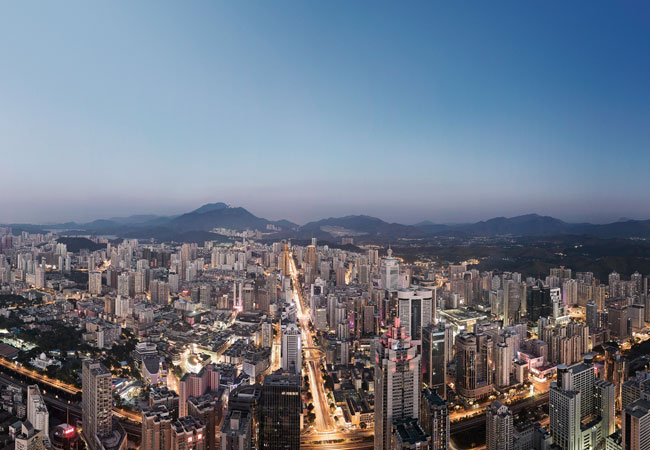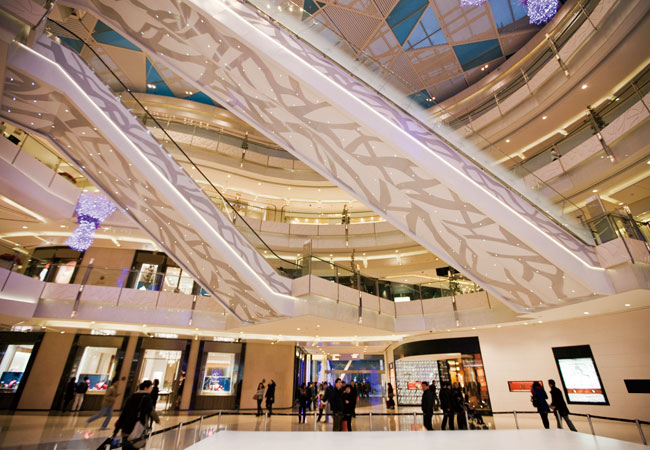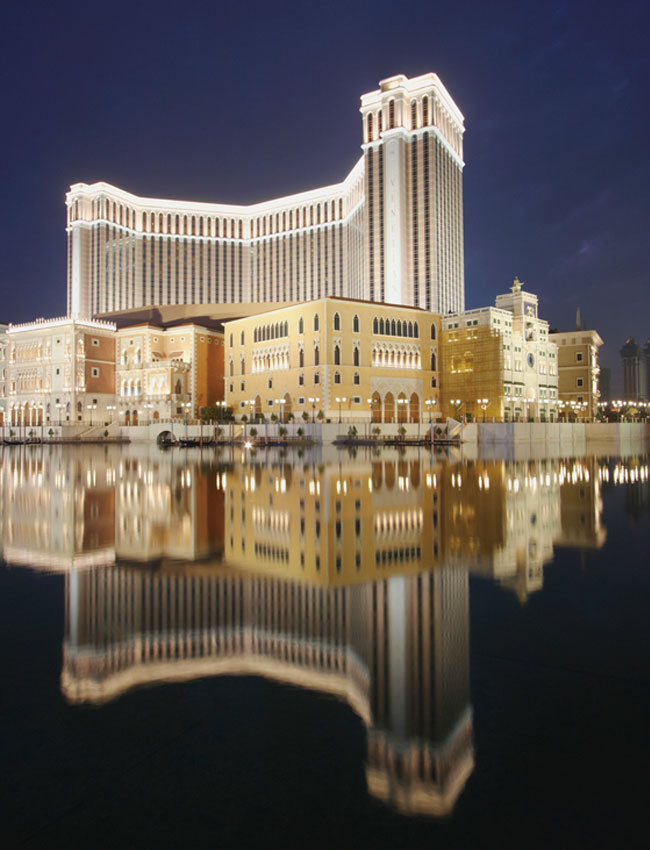Having a Brief Look into the Commercial Properties in China – Part 1 浅谈中国商业地产(上)
By T.K.
Commercial properties are broadly referring to many different types of properties which generate stable income streams for their owners, such as offices, shopping malls, hotels, car parks and so on. In this issue, we will take a brief look on few of them to have a quick and brief understanding of the commercial property in China.
Shopping Malls
Shopping mall has its unique attraction to shoppers in China. Its attractiveness is far higher over the street-front stores. Reasons including the large difference in decorations as well as convenience. With the rapid growing economy, more and more shopping malls are opening in the country. Actually the fast growth in supply is making industry players worry about over-supply.
A leading luxury mall operator in Beijing pointed out the current situation of the operating environment in China. As shoppers are getting richer, many of them could afford for an overseas trip for shopping of the luxury item. This is also attributed to the continual appreciation of RMB and the heavy import tax. On other hand, many shoppers with less affordability have changed to e-channel for shopping. Hence the operating environment of shopping malls in China would face challenges in the short run. The strategy of this operator is to shift the tenant mix from luxury brands to more food and beverage stores, saloons, spa and beauty, and banks. All these tenants provide supporting function to the office tenants in the same area, and thus support its offices’ leasing. In new project developments, increasing offices area and reducing that of retail would be the trend.
Hotels
Under the environment of new challenges including slowing inbound tourism, the impact of government policies on promoting austerity, the increasing number of hotel rooms and rising operating costs, it is believed hotel operators are striving to pass the un-easy times. It is believed that many hotels are concerning the introduction of new policies as this might affect their operational strategies. Hotels were targeting meetings, incentives, conventions and exhibitions (MICE) and F&B, and all these have been affected after the government announced the eight rules on promoting austerity. .
In addition, as more internationally-branded hotels continue to enter China, hotel markets in most cities were impacted. This will enhance the level of each region’s hospitality offering and improve hotel management at the same time, thus contributing to the overall quality and development of China’s hotel industry. Domestic hotels are also paying more attention to themed hotels. They are creating more products that meet the needs of different market segments to cope with increased competition in response to new challenges.
Luxury and upscale hotels are likely to show minimal growth in light of several recent new hotel additions and reduced corporate travel. However, the domestic leisure market is expected to be healthy and the in-bound tourist arrivals are also expected to be increased steadily. Such would be the good news for hotel operators during the current operating environment.
Serviced Apartments
Although services apartments are not overlapping with the market that the hotel serves, the operating environment in the near term is also facing pressure. Additional new supply will continue to put pressure on the residential leasing market, especially the serviced apartment market in the Tier-1 cities.
Meanwhile, demand from multi-national companies (MNCs) is expected to remain flat. Due to the generally slowed globally economy, and even China posted milder growth recently. MNCs are focusing on streamlining, maximizing efficiencies and cost saving rather than expanding. MNCs are also now accelerating their localization through the promotion of local employees. Hiring overseas Chinese is also an alternative than expatriates. This is because the quality of these Chinese employs is improving and they have the advantage of having a better sense of the local market. In addition, many expatriates have chosen to leave China due to the severe air pollution problem.
Because of these pressures and weakened demand, high-end serviced apartments’ occupancy rates and rents are expected to be moderately in the near term.
商业地产泛指许多不同类型的的物业,他们均能为业主产生稳定的收入来源,如办公室,商场,酒店,停车场等。在这期,我们将简单看看其中几种,从而可以更快地了解在中国的商业地产有个初步理解。
商场
中国消费者对商场情有独钟。在中国,商场对消费者的吸引力吸引力远远超过临街店铺。原因包括装修上落差较大而且商场除交通便捷也提供不少便利之处。随着经济的快速经济增长,国内的商场也越开越多。其实,商场的供应快速增长令不少行家都是担心供过于求。
一家北京领先的豪华购物中心运营商指出了目前中国的经营状况。由于消费者越来越富有,不少买得起的奢侈品的人都会选择到海外购物。当然,这也归因于人民币的持续升值和国内高昂的进口税率。另外,不少负担能力较低的消费者则改为从电子渠道购物。因此,中国的商场的经营环境在短期内将面临挑战。该运营商的策略是调整租户组合,将从奢侈品牌转向更多的餐饮店,发廊,水疗和美容及银行等。这些租户能为同一地区的办公楼租户提供配套功能,从而支持其办公楼的租赁。在新项目开发方便,增加办公楼面积和减少零售面积将是大势所趋。
酒店
在新的挑战下,包括入境旅游放缓,政府对推动财政紧缩政策的影响,越来越多的酒店客房和经营成本上升的环境等,相信酒店经营者都在努力度过这个时期。许多酒店都有担心新政策的出台,因为这可能会影响他们的经营策略。不少酒店都瞄准了会议,奖励旅游,会议及展览( MICE)市场,而这些都受到前政府公布的紧缩政策推动节俭所影响。
此外,随着越来越多国际品牌酒店不断进入中国,在多数城市的酒店市场也受到了影响。不过,由于竞争加剧,这将提高各地区的服务水平及提高对酒店管理的要求,进而促进中国酒店业的整体素质和发展。国内的酒店品牌也更加关注于主题酒店。他们正在创造能够满足不同细分市场需求的产品,以应对日益激烈的竞争及新的挑战。
豪华和高档酒店可能表现出轻微增长,鉴于新酒店的增加和商务旅行减少。但是,预计国内休闲旅游市场将稳健发展,而入境游客人数也预计稳步上升。这可是酒店经营者在目前经营环境下的一个好消息。
服务式公寓
虽然服务式公寓的市场基本没有与酒店的市场重叠,但是这一块的经营环境在短期内也面临压力。额外的新增供应将继续对住宅租赁市场施压,尤其是在一线城市的 服务式公寓市场。
与此同时,跨国公司对此等住宅的需求预计将保持平稳。由于全球经济普遍放缓,甚至中国的增长最近也开始有放缓的迹象。跨国公司都专注于精简架构,努力提高效率和节约成本,而不是扩张发展。跨国公司也正在通过聘请更多本地雇员加速其本地化。招聘海归中国员工也是另一取代外籍人士的选择。这是因为这些中国员工的质素比以前更高,而且他们拥有更理解本地市场的优势,办事更接地气。
这些压力削弱了市场的需求,高端服务式公寓的出租率和租金预期在短期内将保持平稳。




You must be logged in to post a comment Login